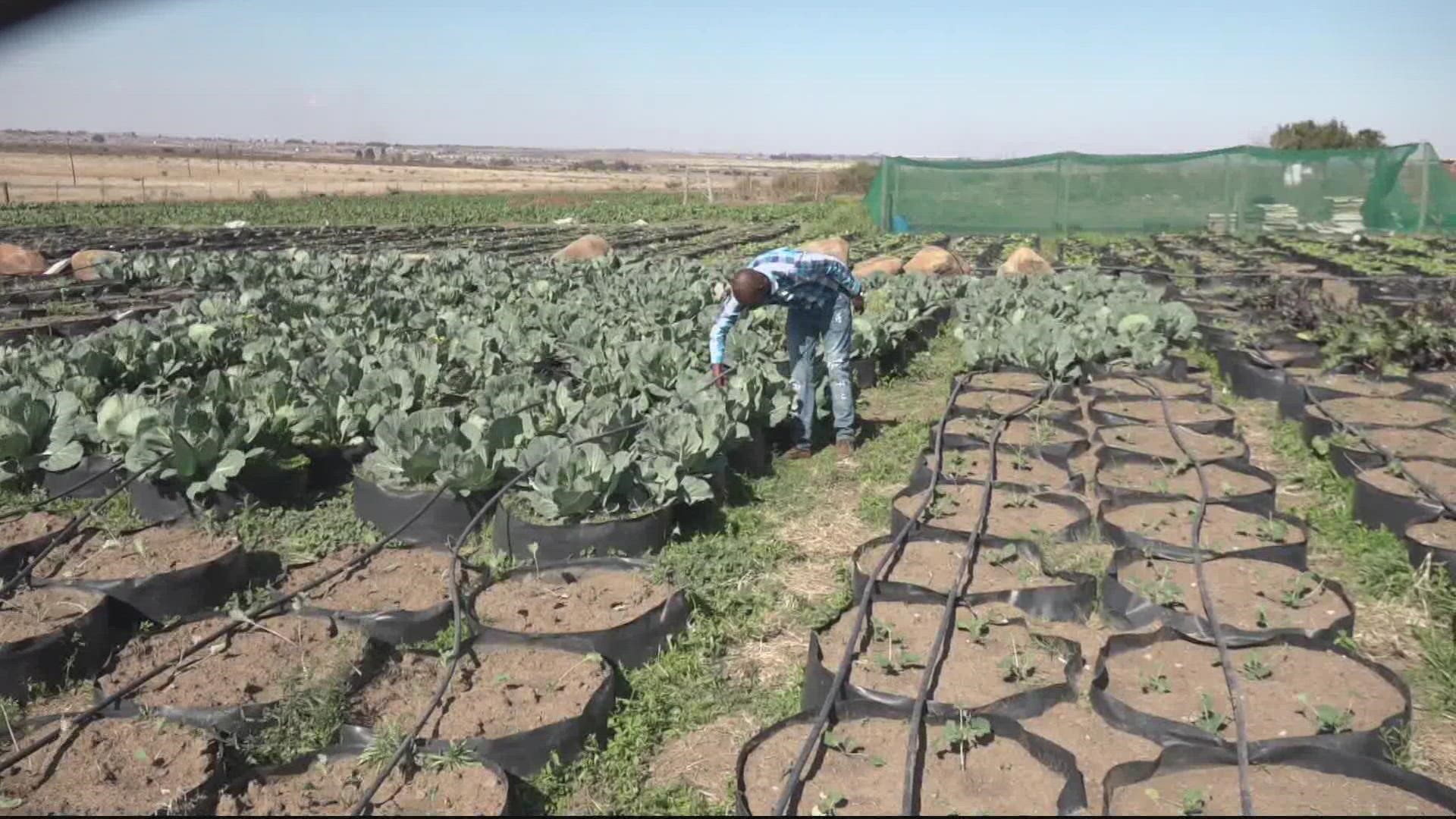JOHANNESBURG, South Africa — Editor’s Note: In 2019, WUSA 9’s Larry Miller was selected by the National Association of Black Journalists as its Ethel Payne Fellow. He was awarded $5,000 to produce and publish a story about issues related to the continent of Africa. COVID-19 restrictions delayed his trip for two years. He was able to complete his travel in May of 2022.
South Africa may be a generation removed from its Apartheid past, but the fight for equality continues among thousands of farmers on more than 96 million acres of land.
Phori Ntsane, 37, is one of those farmers. Soft-spoken, yet deliberate with his words, the young, Black farmer turned a small plot of land into an organic farm. He now produces plenty of vegetables for him and his neighbors.
“We believe in nature here,” Ntsane said. “We need to share, whether with insects or others. We need to share.”

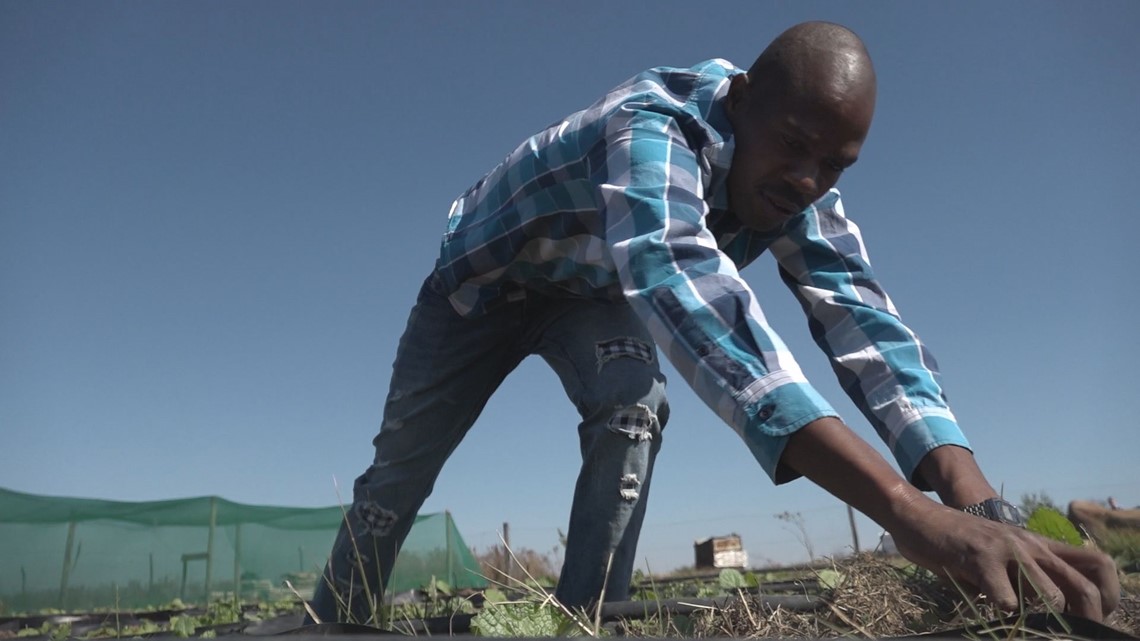
Ntsane’s farm has an unconventional beginning. Out of necessity, he and his neighbors began to farm on vacant, fertile land near their houses, producing spinach, radish and other veggies. They did so without notice, without reservation and without support from the government. The farm grew by several acres, requiring more resources to maintain their crops.
"We started asking for permission because we knew along the way, we would need support," he said. "Because in this industry you cannot make it alone."
In South Africa, land is viewed as a fundamental right -- something citizens should have access to simply because they are citizens and members of the community. It's estimated more than 27 million South Africans are living without proper housing, crammed into tiny, tinned-roof houses built by the African Nation Congress (ANC). Getting access to land, however, could elevate millions out of poverty.
“Land is a key for us,” Ntsane said pointedly. “We started to work the land. And we’ve been creating benefits and benefits.”

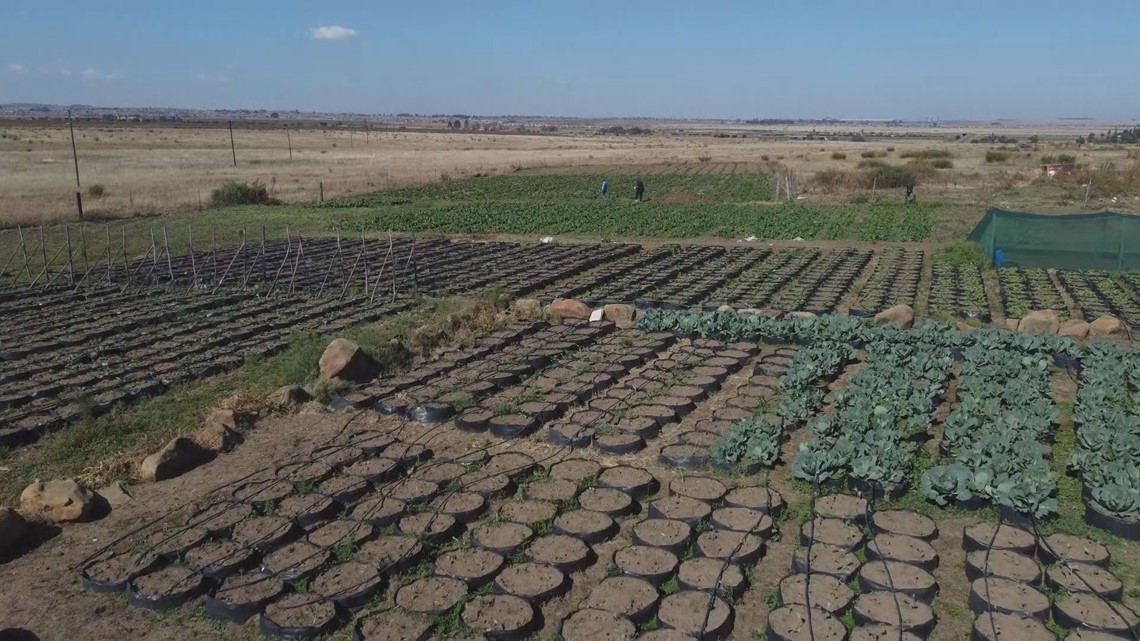
Getting access to land and the resources to maintain it is a topic that’s embroiled much of the country. Black farmers, like Ntsane, say they are consistently fighting for resources and training, in an industry where the number of Black farmers compared to that of the Black population is disproportionate. Demographic data shows Black people make up more than 75% of the population, yet they own just 4% of farmlands in the country. White people, on the other hand, make up 8% of the population and own more than 75% of all farmlands.
The inequality is due, in part, to the Native Lands Act of 1913. The law made it illegal for Black people to purchase or lease land outside of designated reserves. It denied them access to land which they owned or had been leasing from white farmers. The law, and others like it, would eventually lead to the start of Apartheid.
To increase the number of Black farm owners, some members of parliament have called for the country to enact "expropriation without compensation." It's a policy where land from white farmers would be taken without compensation and redistributed among Black farmers.
“We have descendants of land invaders that arrived on our continent here in South Africa and stole land," said Leigh-Ann Mathys, spokesperson for the Economic Freedom Fighters, a far-left political party that strongly supports land expropriation without compensation. "So, the deeply seated issue here is thievery. It’s thuggery. It’s land that was dispossessed."
While some members of the ANC, the country’s ruling party, supports land expropriation without compensation, legislative proposals often go nowhere. A proposed constitutional amendment that would allow for the expropriation of land without compensation failed during a vote in December 2021. Experts like Dr. Cyril Mbatha, director of the Institute of Social and Economic Research at Rhodes University, suggest the policy is used as bait by some politicians as a means of securing votes.
"They've had power for years and have done nothing," Mbatha said. "If they wanted to move forward, they could have done so easily."
Ntsane represents some of the Black farmers who support land expropriation without compensation.
“I personally support land expropriation without compensation," he said. "However, my worry is what do we do with the land we have currently?"
Understanding the demands of farming, Ntsane fears those that acquire land without adequate resources and training are ultimately destined for failure.
It's a concern shared by fellow Black farmer Portia Mahlobo, 44. While the two disagree on land expropriation without compensation, they do agree on the need for additional resources for Black farmers.
“As [expropriation without compensation] is proposed now, and it’s advocated by these political parties, it doesn’t make sense,” Mahlobo said. “What makes sense is putting together a program that…. bridges the gap between those who have and those who have not."
Mahlobo isn’t a natural farmer; the industry sort of found her. She got involved in farming out of an interest in helping struggling communities become more self-reliant. Mahlobo helps manage a small farm through a project called “You Reap What you sow.”

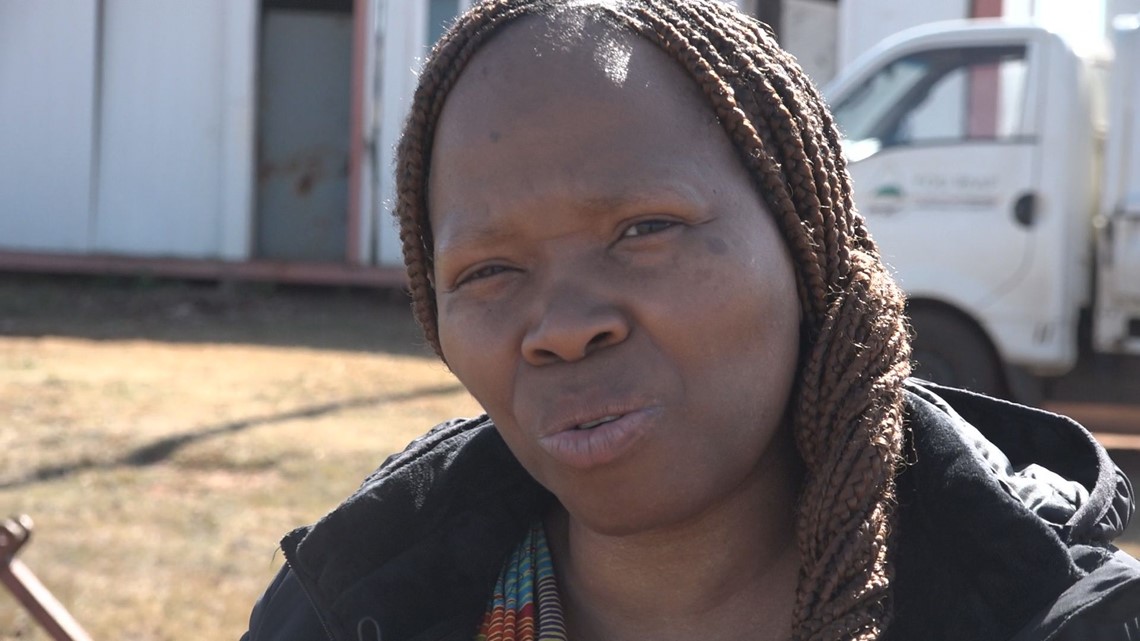
She doesn't support land expropriation without compensation and added that farmers, like herself, are concerned less with policy and more with adequate support.
“Many farmers are struggling because some have access to land but no other resources,” she said.
Her farm co-worker Themba Dingilizwe reiterated how much is still needed.
"We still need a lot, a lot of support from the local government," Dingilizwe said.
Also included in the conversation are white farmers, some of whom inherited land from relatives and those who bought land on their own.
“This is my son -- he’s going to start farming when I retire,” said Koos De La Rey driving around his 500-acre farm in an old car he's owned for decades.
As both a farmer and academic, De La Rey admits the thought that his land could be confiscated without compensation is troubling.
“If it’s taken away from me…it amounts to robbery,” he said passionately. “I started with nothing. I worked 10 hours a day for many, many years and paid for the land I currently own. What makes it their land? What gives them a claim to this land? Absolutely nothing."
He added the government owns millions of acres of land and suggested government-owned land be given away instead of the land owned by white farmers. De La Rey noted that if land were given away without requiring people to work for it, it could negatively impact the economy, a point that's disputed by leading scholars whose research showed a negligible impact from the implication of a land reform policy.
Yet De Le Rey insisted he knew many farms where they "destroyed everything because they didn't work for it."

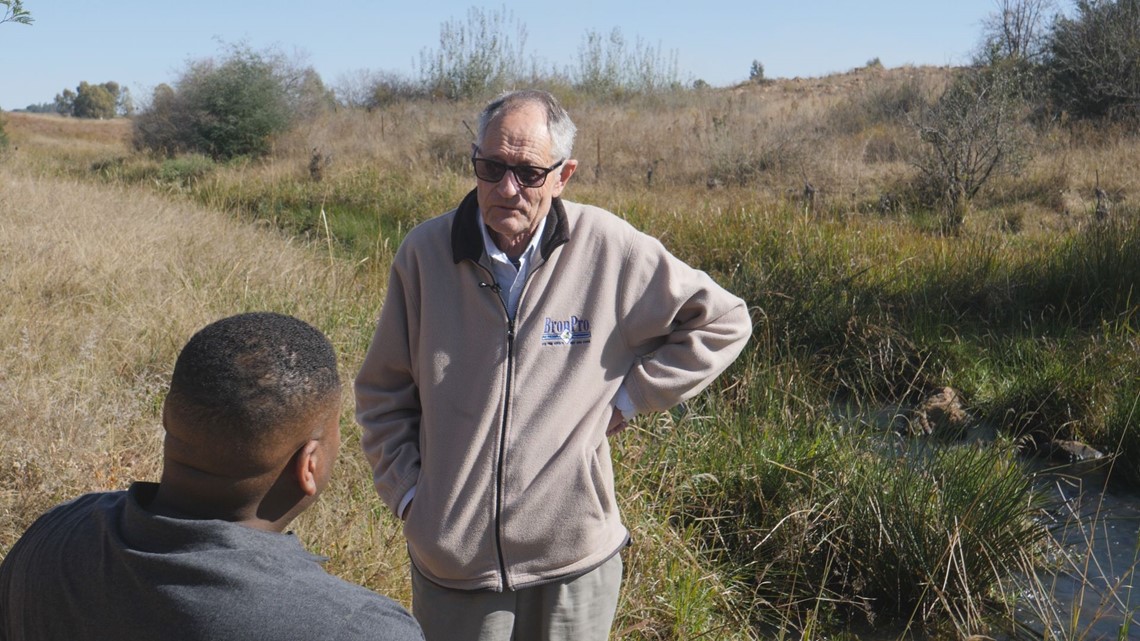
“Of course, many [white farmers] argue that they acquired their property in the open market," said Tembeka Ngcukaitobi, lawyer and author of 'Land Matters: South Africa's failed Land Reforms and the Road Ahead.' "But the problem with that explanation is it ignores what that market was. It was always a white, apartheid-created, exclusionary market."
The Transvaal Agricultural Union of South Africa (TAU SA) represents commercial farmers like De La Rey. They too are concerned about appropriation without compensation and have been activating their membership and allies to oppose any changes by parliament
“We haven’t got a problem if the farmer is a Black or white, woman or a man, that’s not the issue," Bennie Van Zyl, general manager for TAU SA, said. “ What we need is a successful farmer."
Van Zyl said the majority of new, Black farmers end up going out of business, a statistic supported by government data. Experts suggest Black farmers receive limited support and education, which contributes to high rates of failure. In spite of the statistics, many see the elevation of Black farmers as a necessity and if it requires white farmers to have their land taken away without compensation, then so be it.
“Land is the only solution to this country," Ntsane said. "We don't want land for the sake of land. We want land to have our own companies. We want land to take control of the economy of this country."
*Both TEGNA, Inc. and The National Association of Black Journalists made this story possible.
Sign up for the Get Up DC newsletter: Your forecast. Your commute. Your news.
Sign up for the Capitol Breach email newsletter, delivering the latest breaking news and a roundup of the investigation into the Capitol Riots on January 6, 2021.

